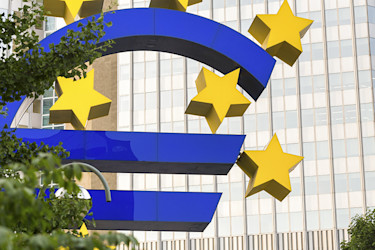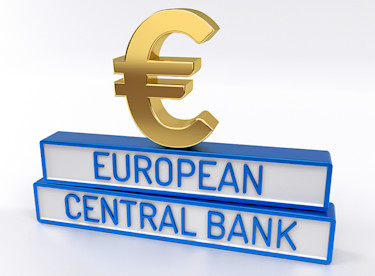Our research
Access all our publications and columns. Use the filters to easily find what content you are looking for.
Filters
All publications
249 results
Spotlight - Geopolitical risk is back with a vengeance
- Macro economy
-
Geopolitical risks have flared up in a dramatic fashion at the start of the year. We present a framework to analyse the main channels of impact for the economy. The Greenland dispute risks escalating economic warfare between the EU and the US and an undermining of NATO, while the risks surrounding Iran revolve around oil supply. Threats to Fed independence could destabilise inflation expectations, but Chair Powell remains defiant.

Global Monthly - Orange is the new Green
- Macro economy
-
Geopolitical risk is increasingly dominating the outlook. The US-EU dispute over Greenland threatens a new tariff war – or worse. Over the next month, we will see just how far Trump is prepared to go to obtain Greenland, and whether Europe can stand its ground. We refrain from changing our base case given the fluidity of events, but uncertainty is clearly back with a vengeance, and the outlook less benign. Spotlight: We present a framework to analyse the main channels through which geopolitical risk impacts the economy.

The economic fall-out from Trump’s Greenland ambitions
- Macro economy
-
President Trump has strongly re-stated his view that acquiring Greenland is a national security priority of the United States. The White House has said it is exploring options to do so and that ‘utilising the US military is always an option’. This comes against the background of the capture of Venezuelan President Maduro over the weekend. This was seen as a demonstration that the Trump administration is willing to use military power to achieve its objectives and that international law is not at the forefront of its considerations. Various other Latin American countries appear to be at risk of a similar fate, but there have also been renewed threats in the direction of Greenland. Greenland is an autonomous territory of Denmark, which is a member of both the EU and Nato. In this note, we set out the current state of play, possible scenarios and the implications for the European economy in a Q&A format.

Steady ECB rates as far as the eye can see
- Macro economy
-
The ECB kept its key policy rates on hold as expected at the December Governing Council meeting. In the press conference following the decision, President Christine Lagarde repeated that the ECB was in a ‘good place’ with regards to interest rates, but also that this does not mean that the policy would be ‘static’. Indeed, the Council continued to signal that it would ‘follow a data-dependent and meeting-by-meeting approach to determining the appropriate monetary policy stance’. However, with economic growth revised up in the projections and inflation (especially stripping out energy prices) broadly seen on target, a rate change in either direction does not seem on the cards anytime soon, absent of a new shock. Indeed, we expect the ECB to keep its deposit rate at 2% in the coming months.

Special Global Outlook 2026 - We need to talk about Exorbitant Privilege
- Macro economy
-
Exorbitant Privilege: The erosion of US institutions has surprised in its speed and scope. What are the risks in 2026, and can Europe step up to fill some of the void?

Global Outlook 2026 - The shifting world order
- Macro economy
-
The transition from one world order to another is in full swing, but it is still unclear how that new world order will look. The advent of AI, China’s rise, and the US’s relative decline offer challenges but also opportunities. The trade war weapon du jour has shifted from tariffs to chokepoints, creating new challenges for governments and manufacturers. Fiscal troubles in France and the UK are likely to remain a worry. Global growth has been remarkably resilient given the headwinds. We expect that resilience to continue in 2026, albeit with considerable risks.

ECB increasingly comfortable on hold
- Macro economy
-
The ECB kept its key policy interest rates steady for the third successive meeting and its commentary suggested that it is increasingly comfortable maintaining this policy stance going forward.

ECB Watch - A less independent Fed could mean more ECB cuts
- Macro economy
-
The US Federal Reserve is coming under unprecedented pressure as an independent institution. As the central bank standing behind the world’s reserve currency – and the world’s biggest, most liquid bond market – this has implications that reach well beyond US shores. Our base case sees the Fed turning dovish from next year onwards, but not fully losing its independence. In that regard, whether Trump succeeds in firing board member Lisa Cook before February 2026 is the key factor to watch [1]. In this Q&A, we explore from a big picture perspective what impact the Fed’s potential loss of independence may have on the ECB, the eurozone economy and on financial markets. We consider both the spillovers from the Fed’s actions as well whether the ECB could come under similar pressure from European politicians.

ECB set to stay on hold, despite inflation undershoot
- Macro economy
-
The ECB kept its policy rates on hold in September, for the second consecutive meeting.

ECB preview: The ECB’s rate cut cycle…it’s probably over
- Macro economy
-
The Governing Council kept policy on hold in July, and is likely to remain on hold at the September meeting and for the foreseeable future.
